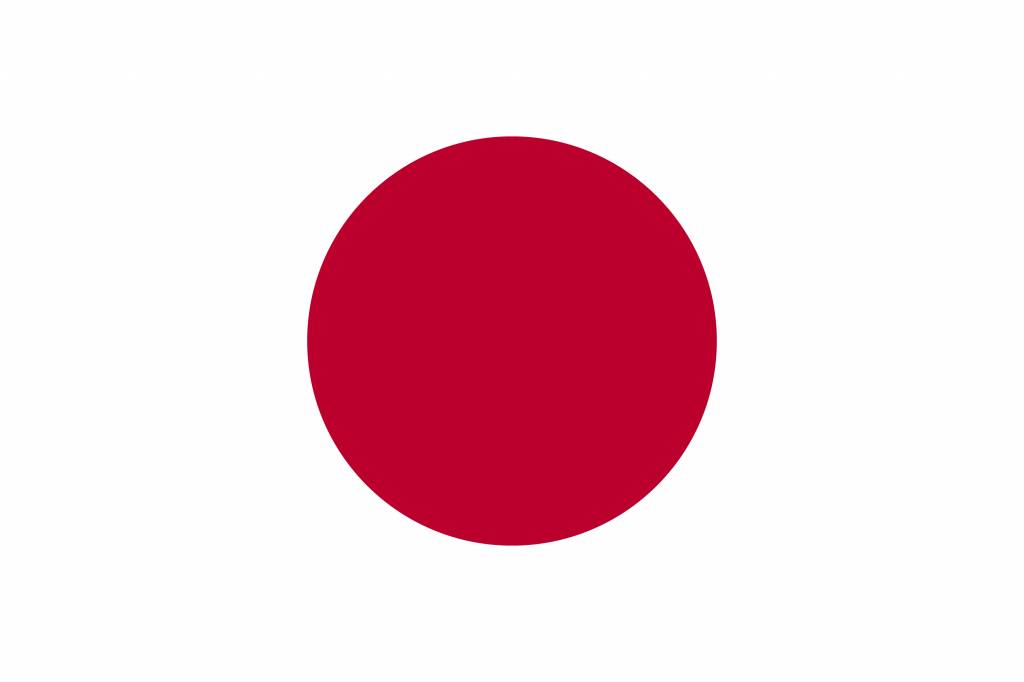Expanding your business overseas is challenging as it is, and in a region as diverse as Asia-Pacific (APAC), this goes doubly so. There are over 60 countries in APAC, each with its own set of employment laws. In addition, these laws can also vary by state or territory within those countries, further complicating things.
As an experienced provider of employer of record (EOR) services, BGC Group is uniquely positioned to help you ensure compliance, minimise risk, and ultimately succeed in the APAC region.
Keep on reading to see how you can navigate the various labour rules and regulations throughout APAC.
Comparing Employment Mandates in China, India, Japan, Australia, and Singapore
 China
China
The Chinese government has strict regulations regarding hiring and managing employees, guided by labour laws such as the Labor Contract Law and Labor Law. These laws place significant responsibilities on employers, including stringent requirements for employment contracts, severance pay, and social insurance contributions.
Additionally, the Hukou system, which classifies citizens as either rural or urban residents, adds another layer of complexity to hiring in China. Employers need to be aware of how this classification impacts social insurance contributions and eligibility for certain types of employment.
Businesses can either enter into a joint venture (JV) with a local Chinese company, form a Wholly Foreign-Owned Enterprise (WFOE) or use an Employer of Record (EOR) if they intend to hire local employees.
 India
India
The Indian government has a detailed framework for hiring and managing workers. These are dictated by legislation such as the Industrial Disputes Act, the Contract Labour Act, and the Employees’ Provident Funds and Miscellaneous Provisions Act.
Foreign companies often choose to hire Indian talent as contractors, but this comes with its set of challenges. A significant risk involves the potential misclassification of such talent. While a company might categorise workers as contractors, Indian employment law might view them as employees, which can lead to severe penalties.
In addition, there’s also the fact that employment laws in India can differ by state. For example, while India has a minimum wage, actual wage rates are determined by state, area within the state based on development level (zone), industry, occupation, and skill level.
To navigate this intricate landscape, foreign enterprises have several routes: they can establish a local subsidiary, employ the services of an EOR or hire Indian talent as contractors.
While hiring contractors may initially appear to be a straightforward approach to tapping into India’s skilled labour market, it carries inherent risks. For one, Indian employment law has stringent criteria for classifying workers, and what a foreign company might consider a contractor could be deemed an employee under local regulations.
Such a misclassification can expose the company to substantial legal penalties, including back pay for benefits and possible fines.
 Japan
Japan
The Japanese government has a well-defined regulatory framework for hiring and managing employees, influenced by various laws. These laws stipulate rigorous responsibilities for employers, from the formulation of employment contracts to workplace safety and hours of work.
Hiring temporary staff might seem like a convenient shortcut to access Japan’s qualified workforce, but this strategy has its challenges. Japan’s labour laws are strict in categorising employment types, and any misclassifying temporary staff as regular employees could result in legal repercussions. including back payment of benefits and additional financial penalties.
Also, do keep in mind that employment practices in Japan differ based on industry and region. For example, industries like healthcare and technology have specialised regulations about employee contracts and benefits.
 Australia
Australia
The Australian government has a comprehensive set of regulations for hiring and managing employees, which are governed by the Fair Work Act and various National Employment Standards (NES). These rules set forth substantial obligations for employers, covering areas like minimum wage, leave entitlements, and termination procedures.
Foreign companies entering the Australian market may hire local talent on a casual or contract basis to maintain flexibility. But, do keep in mind that this approach does have its fair share of challenges.
These include how the Australian legal system has stringent definitions of ‘casual’ and ‘permanent’ employees. And like in India and Japan, misclassifying employees can lead to significant legal and financial repercussions.
Additionally, Australia has a unique system of awards and agreements that further dictate employment conditions. These can vary by industry and occupation, adding another layer of complexity to employment compliance.
 Singapore
Singapore
The Singaporean government has a robust framework of labour laws regulated by the Employment Act and guidelines from the Ministry of Manpower. These laws cover important aspects like minimum wage for specific sectors, rest days, and dispute resolution mechanisms.
For foreign companies interested in Singapore’s market, hiring local employees can be done either directly or through Employment Passes for foreign employees. But do keep in mind that this comes with a number of considerations.
For example, Singapore has detailed laws concerning employee rights, like mandatory contributions to the Central Provident Fund (CPF) for citizens and permanent residents. Foreign companies should note that not adhering to these guidelines could result in penalties.
Moreover, Singapore has a range of sector-specific employment guidelines and licences. For example, companies must adhere to the financial sector’s additional compliance requirements.
How EORs Can Help You Comply with Local Employment Mandates
Employers of records or EORs allow businesses to tap into the local labour pool while remaining 100% compliant with a country’s rules and regulations. This includes managing essential functions such as payroll processing, human resource (HR) management, benefits administration and tax compliance.
EORs are also extremely useful as they allow a company to expand their operations overseas without entering into a JV or setting up a local subsidiary. With that in mind, let’s explore the benefits of EORs in the following APAC nations.
EOR China
Employers of Record are invaluable tools for foreign companies navigating China’s complex labour laws and the Hukou system. Besides ensuring that your labour practices are above board, they can hire employees on your behalf, so there’s no need to enter into a joint venture with a local firm or form a WFOE.
EOR India
In India, an Employer of Record takes the guesswork out of state-specific labour laws and potential misclassification risks. They handle essential HR functions, payroll, and benefit administration by local and state mandates.
Plus, with an EOR, there’s no need too form a local subsidiary, which helps you quickly tap into India’s diverse talent pool while remaining compliant with all state and government laws.
EOR Japan
EORs provide an efficient way to comply with Japan’s Labor Standards Act and Employment Security Act. They manage the risks of hiring temporary staff or dispatched workers, ensuring that employment categories meet local regulations.
EOR Australia
Australian employment law is nuanced, with different awards and agreements for varying industries and occupations. An Employer of Record navigates these intricacies on behalf of the foreign company, managing payroll, benefits, and tax compliance. This enables businesses to hire local talent legally without establishing a local presence.

Tips and Best Practices for Managing EOR Workers in APAC
 Understanding Local Work Culture
Understanding Local Work Culture
Each APAC country has its own work culture, and understanding these nuances can greatly impact your team’s success. For instance, the Japanese workplace values hierarchy and consensus, while the Australian work culture may be more egalitarian. This is why it is essential to be sensitive to local cultural norms.
 Regular Communication and Check-ins
Regular Communication and Check-ins
Given the complexities of APAC employment laws and the added layer of an EOR, consistent and transparent communication becomes crucial. Regular check-ins with your EOR partner and your local employees will ensure everyone is on the same page, both operationally and culturally.
 Customise Onboarding Procedures
Customise Onboarding Procedures
A standardised onboarding process may not be effective across all APAC markets due to local expectations and norms. Customising your onboarding procedures to account for local conditions can lead to a smoother assimilation process for new hires.
 Legal and Compliance Training
Legal and Compliance Training
Since you’re relying on an EOR to manage legal and employment requirements, your internal teams must also be familiar with these guidelines. Consider periodic training sessions on compliance matters specific to each country, ensuring that even your home office is aligned with local laws and expectations.
 Employee Development and Career Planning
Employee Development and Career Planning
Investing in the development of your local staff can reap long-term benefits. Whether it’s technical skills or soft skills, offering career development programs that are aligned with local market needs will enhance both productivity and employee satisfaction.
 Effective Dispute Resolution
Effective Dispute Resolution
Conflict is bound to arise in any working environment, and the international context can magnify misunderstandings. An EOR can serve as a neutral third party, familiar with local labour laws and cultural norms, to mediate conflicts and offer legally sound solutions.
 Pay Attention to Employee Well-Being
Pay Attention to Employee Well-Being
Lastly, employee well-being is a universal concern but has localised dimensions. Whether it’s Australia’s emphasis on work-life balance or Japan’s focus on employee longevity, understanding what well-being means in each local context can significantly impact your team’s overall performance and happiness.
Minimise Business Risk and Stay Compliant with the Help of an EOR
Hiring in the Asia-Pacific (APAC) region can get tricky when you’re dealing with many different rules and regulations. Fortunately, you don’t have to worry about getting caught up in the details.
An Employer of Record can handle everything for you and facilitate your business’ expansion overseas. From making sure you pay the right taxes to understanding local work rules, an EOR makes expanding your business into new countries easier and safer.
For more insights, browse our BGC Group blog here.
Click here to request for a free EOR Quotation.



